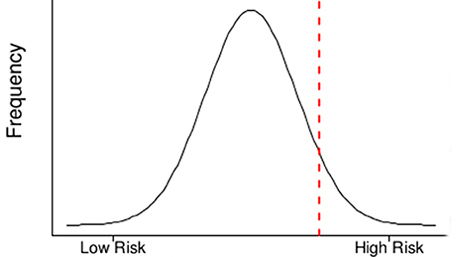
08/28/2020
Hot Topics of the Day are picked by experts to capture the latest information and publications on public health genomics and precision health for various diseases and health topics. Sources include published scientific literature, reviews, blogs and popular press articles.
Sign up MyPHGKB to receive the daily hot topic email alert.
Archived Hot Topics of the Day By Date
The coronavirus is most deadly if you are older and male — new data reveal the risks
S Mallapaty, Nature News, August 28, 2020
Prevention of endothelial dysfunction and thrombotic events in COVID-19 patients with familial hypercholesterolemia.
Vuorio Alpo et al. Journal of clinical lipidology 2020 Jun
Development and evaluation of a rapid CRISPR-based diagnostic for COVID-19.
Hou Tieying et al. PLoS pathogens 2020 Aug (8) e1008705
People with Moderate to Severe Asthma
CDC, August 2020

Data on COVID-19 during Pregnancy
CDC, August 2020

Efficient high-throughput SARS-CoV-2 testing to detect asymptomatic carriers
N Shental et al, Science Advances, August 2020
For Quick Coronavirus Testing, Israel Turns to a Clever Algorithm
DM Halbfinger, NY Times, August 27, 2020
The Role of Digital Health Technologies in Drug Development: Proceedings of a Workshop
NASEM Roundtable on Genomics and Precision Health Workshop, 2020
Pediatric pharmacogenomics: challenges and opportunities: on behalf of the Sanford Children’s Genomic Medicine Consortium
D Gregornik et al, Pharmacogenetics Journal, August 26, 2020
CYP2C19 Genotyping to Guide Antiplatelet Therapy After Percutaneous Coronary Interventions: One Size Rarely Fits All.
Moliterno David J et al. JAMA 2020 08 (8) 747-749
Genomic Sequencing for Newborn Screening: Results of the NC NEXUS Project.
Roman Tamara S et al. American journal of human genetics 2020 Aug
Tailoring Intensity of Active Surveillance for Low-Risk Prostate Cancer Based on Individualized Prediction of Risk Stability.
Cooperberg Matthew R et al. JAMA oncology 2020 Aug e203187
Genetic Disease Risk Impacted by Entire Genome, Study Reveals
J Kent, Health Analytics, August 27, 2020
Is Artificial Intelligence Better Than Human Clinicians in Predicting Patient Outcomes?
Lee Joon et al. Journal of medical Internet research 2020 Aug (8) e19918
Disclaimer: Articles listed in Hot Topics of the Day are selected by Public Health Genomics Branch to provide current awareness of the scientific literature and news. Inclusion in the update does not necessarily represent the views of the Centers for Disease Control and Prevention nor does it imply endorsement of the article's methods or findings. CDC and DHHS assume no responsibility for the factual accuracy of the items presented. The selection, omission, or content of items does not imply any endorsement or other position taken by CDC or DHHS. Opinion, findings and conclusions expressed by the original authors of items included in the Clips, or persons quoted therein, are strictly their own and are in no way meant to represent the opinion or views of CDC or DHHS. References to publications, news sources, and non-CDC Websites are provided solely for informational purposes and do not imply endorsement by CDC or DHHS.
- Page last reviewed:Feb 1, 2024
- Content source:








